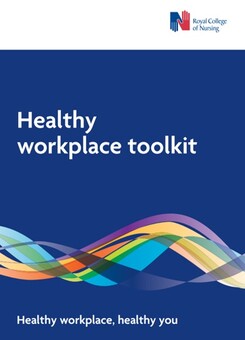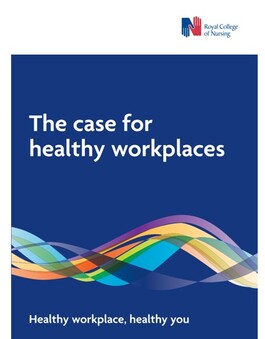Health and Wellbeing
|
THE WORKPLACE
The National Health Service is the 5th largest employer in the world, over 55% of the UK working population are employed in the NHS. Looking after the wellbeing of healthcare workers is of huge importance. It is widely acknowledged that there are complex factors that influence workforce wellbeing and resilience. The NHS is facing huge challenges:
|
WORKING IN CRITICAL CARE
Critical care offers challenges to personal balance and wellbeing which include, but not exclusive to, prolonged engagement with patients and their carers, potential for poor outcomes, need for complex decision making, a 24/7 workload and the ubiquity of moral distress. However, on the other hand there can be substantial rewards. These include teamwork and peer support, predictable duties, a defined area of work, the privilege and challenge of working with seriously ill patients, and sometimes great treatment success. Management strategies often focus upon the healthcare professional managing their stress at work, but there is growing acknowledgement that the nature of work and how an individual can be impacted by their team, their environment and the larger healthcare system. Staff are the greatest asset to the NHS and it is really important that we look after ourselves and each other. All our provider partners have a range of health and wellbeing initiatives to help us do this. Our trusts have a wide range of initiatives to support our staff wellbeing. To find out what your organisation is doing to support staff health and wellbeing, visit your trust intranet. |
Health and Wellbeing Resources
The Intensive Care Society
The Intensive Care Society has released a wellbeing resource pack developed with Dr Julie Highfield, Clinical Psychologist. The poster series aims to improve our understanding of psychological wellbeing at work, the impact reduced wellbeing can have and what we can do in response and includes tips for dealing with extraordinary situations and everyday working in critical care.
Click on the links below to access the ICS Wellbeing resources:
Click on the links below to access the ICS Wellbeing resources:
NHS People Website
The Royal College of Nursing Wellbeing Toolkits
Professional Nurse Advocates
The Professional Nurse Advocate (PNA) model was launched in May 2021.
The PNA is a practicing nurse, trained to support the team by helping nurses to lead and deliver quality improvement initiatives through restorative supervision.
The Critical Care National Network Nurse Leads Forum (CC3N) state it is best defined by the Advocating for Education, Quality and Improvement (A-EQUIP) model, which is utilised in practice, this includes:
1. Restorative clinical supervision
2. Personal action for quality improvement
3. Education, development and monitoring
4. Evaluation and quality control
Restorative supervision enables the PNA to support staff working within challenging and stressful clinical environments, by listening, discussing, processing and working on a solution for any challenges.
Alongside this, quality improvement (QI) is a key aspect to the PNA role which involves mentorship and exploring options for QI projects.
We have over 25 PNA's embedded within our 6 Critical Care Unit's in L&SC, with more in training. As a Network, we have regular PNA forum meetings which enables our PNA's to share and utilise peer support.
The PNA is a practicing nurse, trained to support the team by helping nurses to lead and deliver quality improvement initiatives through restorative supervision.
The Critical Care National Network Nurse Leads Forum (CC3N) state it is best defined by the Advocating for Education, Quality and Improvement (A-EQUIP) model, which is utilised in practice, this includes:
1. Restorative clinical supervision
2. Personal action for quality improvement
3. Education, development and monitoring
4. Evaluation and quality control
Restorative supervision enables the PNA to support staff working within challenging and stressful clinical environments, by listening, discussing, processing and working on a solution for any challenges.
Alongside this, quality improvement (QI) is a key aspect to the PNA role which involves mentorship and exploring options for QI projects.
We have over 25 PNA's embedded within our 6 Critical Care Unit's in L&SC, with more in training. As a Network, we have regular PNA forum meetings which enables our PNA's to share and utilise peer support.


